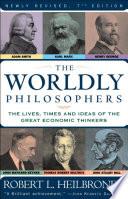“No more profound moral indictment of capitalism had ever been posed.”
Source: The Worldly Philosophers (1953), Chapter VII, The Underworld of Economics, p. 188
Context: The book was called Imperialism; it was a devastating volume. For here was the most important and searing criticism which had ever been levied against the profit system. The worst that Marx had claimed was that the system would destroy itself; what Hobson suggested was that it might destroy the world. He saw the process of imperialism as a relentless and restless tendency of capitalism to rescue itself from a self-imposed dilemma, a tendency that necessarily involved foreign commercial conquest and that thereby inescapably involved a constant risk of war. No more profound moral indictment of capitalism had ever been posed.
